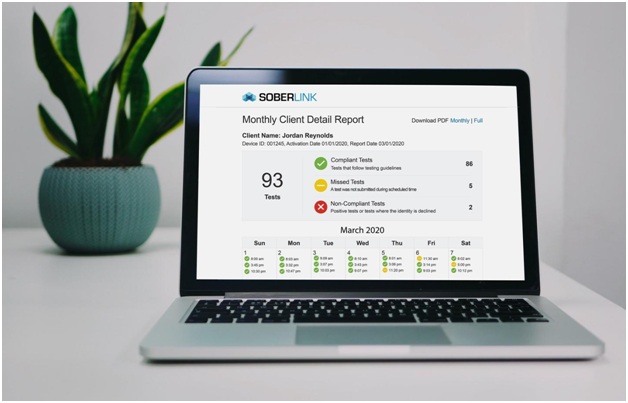Table of Contents
Parent-Child Relationships: The Role of Remote Alcohol Monitoring for Recovery
When a family is challenged by alcohol abuse, the road to recovery is not always a paved, well-lit path. Instead, it may feel like an isolating journey following an obscure map traveling down a dark street with unclear directional signs. And along the way, there may be unexpected twists, turns, and guest encounters. There are many fears when it comes to getting help for addiction of any kind. One of the biggest has to do with leaving your home and going somewhere unknown, that’s why it is important to assess different luxury alcohol rehab centers to find the one that’s best for you. However, when a parent chooses to travel this path, they often work toward self-improvement and focus on repairing relationships with loved ones damaged by excessive drinking.
The Parent-Child Relationship

One of the most challenging relationships to repair is the one between the parent and child. Kids rely on their parents for basic necessities like food, shelter, and water. Perhaps just as important, kids also depend and thrive on receiving safety, comfort, and security. When basic needs are not met, or trust is broken, it can be hard to feel secure in the relationship. Various factors can determine the best approach to mending parent-child relationships, and some of it may be through trial and error. However, there are a few main factors to consider when attempting to produce positive outcomes.
These include:
- Rebuilding trust. Trust is a foundational aspect of any relationship. Once trust is tarnished, it can take time and effort for it to be restored. However, children often thrive on a parent’s trust, making it a primary focus during recovery.
- Peace-of-mind. Anxiety can increase for children while witnessing a parent’s recovery process. Therefore, it’s often beneficial to develop ways to settle nerves and offer peace-of-mind to children fearful a parent may relapse.
- Emotional Comprehension. Everyone wants to be heard, and children can feel like they are speaking, but no one is listening. In these instances, a parent should listen and validate a child’s concerns regarding their alcohol abuse. Even if some of the issues cannot be addressed immediately or do not require action, listening and showing empathy is critical to fostering a comfortable parent-child relationship.
- Educating children on the recovery process, issues, and potential challenges a parent may face can help families feel like they are working towards a common goal. Offering resources and inviting each person to ask questions and express concerns can help parents demonstrate to their children that they are committed to transparency during recovery.
How to Move Forward
During early recovery from alcohol abuse, when trust and relationships are most fragile, parents and children may need help learning how to communicate, behave, and feel comfortable with one another. This will require time and effort from both parties, but some tools can assist with this process.
Remote alcohol monitoring can help parents document proof of sobriety, allowing them to remain accountable for themselves and their loved ones. Most often used in child custody litigation, alcohol monitoring systems use intuitive technology to uphold the best interests of the child in situations where alcohol abuse is concerned. Alcohol monitoring can allow parents to rebuild trust with their kids while establishing new, healthy habits and routines. An added benefit, remote monitoring can also be used to help streamline custody cases, decreasing a parent’s time spent in court, away from their children.
The global leader in remote alcohol monitoring technology, Soberlink combines a breathalyzer with wireless connectivity to automatically document proof of sobriety in real-time, providing parents with a sense of accomplishment while rebuilding trust and improving relationships with their kids.
How Soberlink Works

It is challenging to hold someone accountable without factual information and data, especially when children are involved and at risk. Fortunately, Soberlink provides court-admissible reports, allowing parents the ability to provide proof-of-sobriety at any time. Beyond its vast technical features, Soberlink allows parents the opportunity to rebuild trust with their children, which may have been damaged due to alcohol abuse. The remote system is a way to keep parents accountable and honest, helping their children witness their growth and progress.
Soberlink offers flexible schedules, real-time alerts, and Advanced Reporting™ capabilities, making it a premier accountability tool for parents looking to abandon old behaviors and embrace healthier ones.
To ensure the integrity of each test, Soberlink uses adaptive facial recognition to confirm identity. Once identity has been confirmed, the parent’s results are delivered in real-time to their support network. If a parent produces a non-compliant test, loved ones will be notified and can interfere or adjust test frequency as need-be.
The Benefits of Choosing Soberlink
To provide concrete data that goes beyond taking someone’s “word for it,” families can begin rebuilding trust free of any skepticism that may exist due to past behavior. Children benefit from a sober parent who is committed to building a healthy relationship with them. When suspicion or distrust is removed from the relationship, it can be easier to have reparative conversations and keep the focus on the kids instead of the addiction. With Soberlink, the system tracks progress for you, allowing parents the opportunity to mend important relations.
Reliability and trust in a parent matter. When it comes to something as serious as custody and alcohol abuse, it is essential to implement trusted tools and systems. Trust The Experts in Remote Alcohol Monitoring Technology™ to help restore what was once lost and prove to yourself and loved ones that your commitment to sobriety and children is a sound one.

